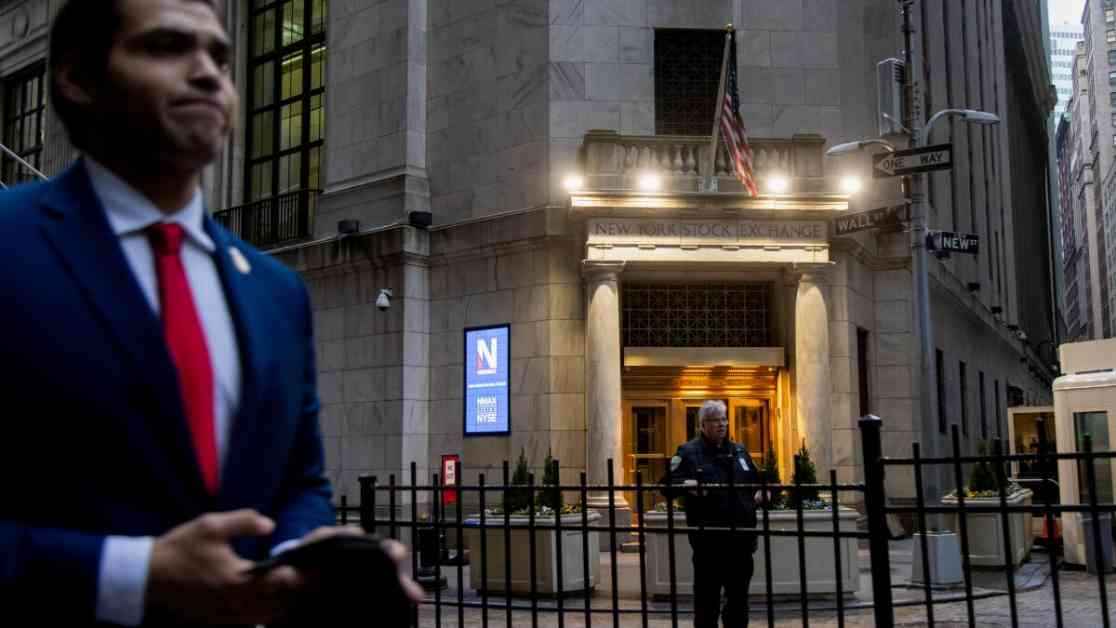A financial earthquake rattled Washington for a second day, with a group of influential Republican senators teaming up with Democrats to challenge President Trump’s tariff plan. The policy, unveiled by Trump on Wednesday, proposes imposing hefty tariffs on almost every nation, starting at 10% but escalating for major U.S. trade partners like China, South Korea, Japan, and the European Union. This move triggered a market frenzy, causing the Standard and Poor’s 500 and the Dow Composite to plunge over 4.5%, wiping out $5 trillion in just 48 hours—the largest two-day loss ever recorded.
Amidst the chaos, China retaliated by announcing a 34% tariff on U.S. imports, further fueling the economic turmoil. Federal Reserve Chair Jerome Powell voiced concerns about the negative impact of the trade policy, warning of potential spikes in unemployment and inflation. J.P. Morgan raised the likelihood of a recession this year to 60%, emphasizing the growing economic uncertainty.
Senate Minority Leader Chuck Schumer expressed deep apprehension about the looming recession, labeling Trump’s tariff policy as one of the administration’s most catastrophic decisions to date. In response to the crisis, Republican Senator Charles E. Grassley and Democratic Senator Maria Cantwell introduced a bipartisan bill requiring presidential submission of new tariff policies to Congress for review and approval, aiming to reclaim authority over trade decisions.
The Grassley-Cantwell bill gained support from additional Republican senators like Jerry Moran, Lisa Murkowski, and Mitch McConnell, signaling a bipartisan effort to challenge Trump’s tariff agenda. This marks the second time in a week that senators have opposed the president’s import tax proposals, following a recent resolution aimed at preventing tariffs on Canada. Despite some Republicans, including Trump ally Thom Tillis, showing interest in the bill, the path to its enactment remains uncertain, with Democratic House leadership cautious about immediate action.
While the political battleground intensifies, President Trump remains steadfast in his convictions, assuring investors on social media that his policies will remain unchanged. As the president retreats to his Florida resort for the weekend, the economic landscape continues to tremble under the weight of escalating trade tensions and mounting recession fears. The future remains uncertain, with stakeholders across the political spectrum grappling with the complexities of global trade policies and their far-reaching consequences.
Implications of Trade Policy
The repercussions of Trump’s tariff plan extend far beyond the financial markets, casting a shadow of uncertainty over the global economy. With heightened risks of inflation, unemployment, and recession looming on the horizon, experts warn of the potential long-term consequences of these trade decisions. As businesses and consumers brace for the impact of increased tariffs and retaliatory measures, the need for a comprehensive, bipartisan approach to trade policy becomes increasingly urgent.
Bipartisan Response
In a rare display of unity, Republican and Democratic senators join forces to challenge the president’s tariff policies, underscoring the gravity of the economic crisis at hand. The Grassley-Cantwell bill represents a significant step towards congressional oversight of trade decisions, marking a crucial turning point in the ongoing debate over executive authority in matters of international trade. With bipartisan support growing for legislative measures to curb the president’s tariff powers, the stage is set for a pivotal showdown in the halls of Congress.
President Trump’s unwavering stance on trade policies stands in stark contrast to the bipartisan efforts to rein in his authority, setting the stage for a high-stakes battle over the future of U.S. trade relations. As the political drama unfolds, the fate of the global economy hangs in the balance, with stakeholders across the spectrum navigating the turbulent waters of trade policy in an increasingly interconnected world. Amidst the chaos and uncertainty, one thing remains clear: the need for decisive, collaborative action to address the challenges of a rapidly changing economic landscape.














